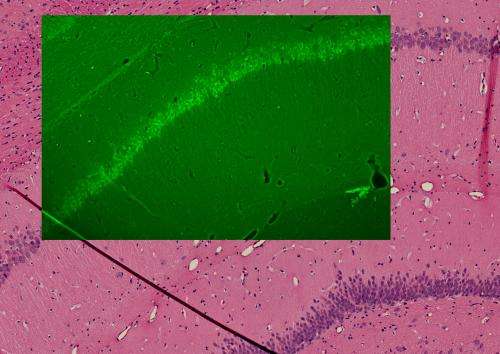Cold-blooded research has hearts thumping

The protective effect of inducing controlled hypothermia following sudden cardiac arrest will now be investigated in detail. The goal of the scientific work is to judge whether this type of cryotherapy can be improved when using parallel simultaneous invasive resuscitation procedures. Establishing a powerful model to help predict improvements in patients' health is key for the project. Neuro-behavioural tests will also be developed to enable various treatment regimens to be compared. The project, supported by the Austrian Science Fund FWF, will establish the basis for best practices when saving lives using controlled hypothermia.
Things stay fresh longer when refrigerated. That goes for lettuce as well as humans – especially when the body is not provided with an adequate supply of oxygen. This occurs following sudden cardiac arrest, which has a survival rate of less than ten percent. Cooling to 33 degrees Celsius – known as mild hypothermia – is actually the only effective therapy for improving the survival rates of these patients. A team of researchers from the Medical University of Vienna will now investigate how to improve hypothermic treatment when using it in combination with invasive resuscitation procedures.
Resuscitation & repairing
Hypothermia works by reduction of reperfusion injury – the damage that is inflicted by oxygenized blood flowing into oxygen-deprived tissue. As paradoxical as it may sound, the resuscitation that makes survival of the patient possible, likewise leads to damage of the heart muscle and brain. Dr. Andreas Janata from the Department of Emergency Medicine at the Medical University of Vienna and leader of the project on this topic: "Reperfusion injury occurs when blood flow is restored to the brain after a period of hypoxia, which is oxygen deprivation. Restoration of the blood flow actually triggers an inflammation reaction and oxidative stress that can damage the tissue. Hypothermia can reduce the effects of these mechanisms of damage." Current conventional protocols involve reducing the body temperature down to 33 degrees Celsius. According to the hypothesis, even lower temperatures would minimise damaging after-effects in the brain – but they would lead to intolerable side effects for the heart.
Dr. Janata and his team want to get a grip on precisely this treatment dilemma. For invasive resuscitation procedures using a heart-lung machine relieve the heart during resuscitation and thus allow the use of lower temperatures. However, the best temperature scheme is not yet known and the project will settle this.
Therapeutic cocktail 'on the rocks'
Hypothermia influences a great many physiological processes, which is one of the challenges involved. These include programmed cell death (apoptosis), immune responses, and damage to nerve cells (excitotoxicity), as well as oxidative cellular stress. The processes affected are actually so complex that it would be difficult to identify any one single pharmaceutical therapy that could have just as comprehensive and positive an effect as hypothermia does. Dr. Janata comments: "Hypothermia is like a cocktail of various medications. That makes it very difficult to study its effect or determine the best practices for treatment." Due to this complexity, a significant part of the work begun recently by his team consists of setting up a suitable multi-tier model that permits analysis of various treatment regimens.
In fact, the team had already managed to develop models for ventricular fibrillations and invasive resuscitation some time ago. The project will now include developing neuro-behavioural tests for this model. These tests will be carried out following an induced circulatory arrest and permit the consequences of treatments with varying degrees of hypothermia during invasive resuscitative procedures to be compared. The results of this project, which is supported by the FWF, will then offer a basis for best-practices treatment in cases of sudden cardiac arrest – a medical problem that has exhibited frighteningly low survival rates, despite its frequent occurrence.














